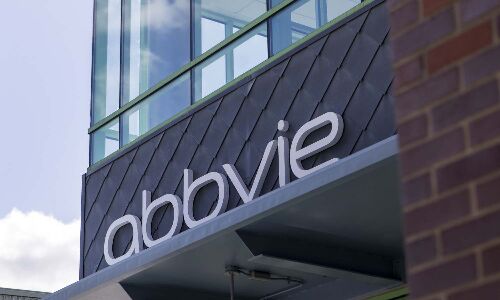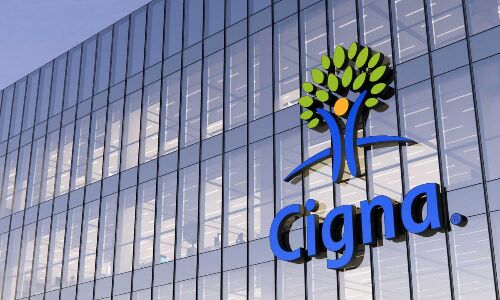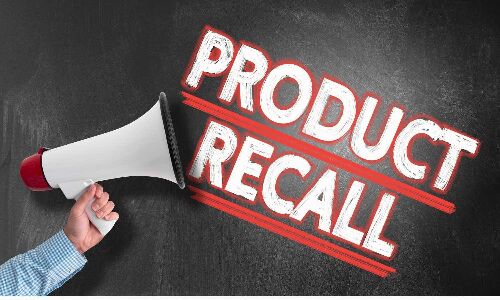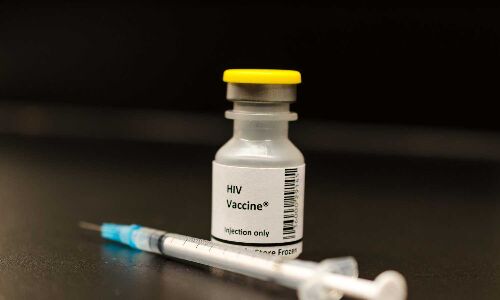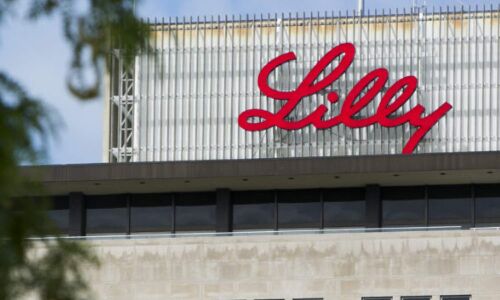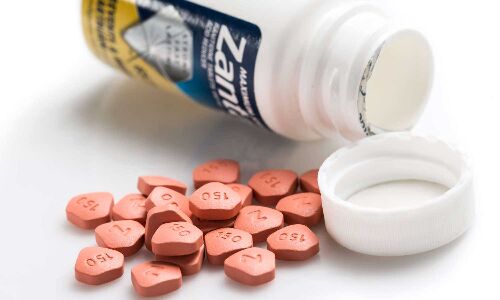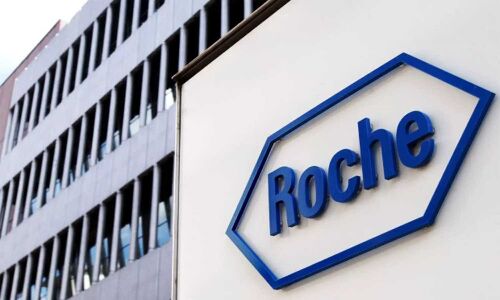Medical News, Health News Latest, Medical News Today - Medical Dialogues |
Pfizer, Bristol Myers, AbbVie drugs likely to face US price negotiation
New York: The blood thinner Eliquis from Bristol Myers Squibb, Pfizer's breast cancer drug Ibrance and AbbVie's leukemia treatment Imbruvica are likely to be among 10 big-selling medicines subject to US price negotiations for 2026, according to five Wall Street and academic analyses shared with Reuters.
Last year Congress passed the Inflation Reduction Act (IRA), giving the US government power to start the first price negotiations over prescription drugs for its Medicare health program covering more than 60 million Americans, most over age 65.The government will launch the negotiation process in September by naming the first drugs it plans to target. They are expected to be the 10 pharmacy-based prescription drugs it spends the most on for the year ended May 2023.For months, lobbyists for the biggest pharmaceutical companies have been meeting with Medicare officials trying to game out which drugs the government will choose, what discounts they will seek, and ways to redress the final price. Five lobbyists told a news agency they have been given little information beyond what has been publicly disclosed.The US Centers for Medicare and Medicaid Services (CMS), which will run the negotiation process, said in a statement it expects to answer some of the industry's questions in a guidance document it will circulate this spring. A spokesperson said the agency intends to use feedback from monthly calls with drugmakers to inform implementation.For individual companies, the financial impact is expected to vary. The nonpartisan Congressional Budget Office estimates that negotiations will save the government around $4.8 billion in 2026 and nearly $25 billion a year by 2031, as more drugs are added to the negotiation process.Those savings will help fund the bill's out of pocket spending caps and reduced cost sharing for older Americans. "We couldn't have the other parts of the IRA without this Medicare negotiation," said Sean Dickson, director of the West Health Policy Center, a non-partisan healthcare think tank.A news agency compiled five lists prepared by Wall Street analysts and academics with a total of 27 drugs across them. Eliquis, which Bristol Myers shares with Pfizer, Ibrance, and Imbruvica, sold by AbbVie and Johnson & Johnson, appear on every list.Novo Nordisk's diabetes drug Ozempic, prostate cancer treatment Xtandi from Astellas Pharma and Pfizer, and J&J's blood thinner Xarelto are on three of the lists.The lists differ because each analyst has their own projections for drug sales, and it is not certain if the government will consider gross sales or net sales after market discounts.MAKING THE CASEBristol Myers Chief Commercialisation Officer Chris Boerner said in an interview last month that Eliquis may well be in the government's crosshairs. "We would anticipate that you could potentially see price setting by the government with Eliquis," he said.Astellas said it was analyzing information from CMS to understand its potential impact. Pfizer, Novo Nordisk and J&J declined to comment on the likelihood their drugs would be included in the first round of negotiations. AbbVie did not respond to request for comment.Medicare is the biggest single purchaser of drugs in the country, reimbursing private companies and hospitals for medications used by individuals covered by the program.Under the new law's process, the government will publish its list of the first 10 drugs for negotiation from the pharmacy-based prescription drug program called Part D on Sept. 1.Drugmakers will have to submit data making the case for each treatment's value by Oct. 2, including whether the drug represents a therapeutic advance and if it serves unmet medical needs. Drugmakers have long presented similar value-based arguments in negotiations with private buyers and European governments.Three industry lobbyists told a news agency they are pressing Medicare officials to commit to a process under which it will reveal how the government arrived at a final price, and have asked for a framework for resolving disputes.Without such a process, drugmakers could resort to lawsuits as a last-ditch attempt to stop government price setting - even though the IRA exempts the process from lawsuits, two of those lobbyists said.One of those lobbyists suggested adoption of an appeal process similar to ones used by European countries, where price-setting regimes have long existed, would give companies recourse outside of lawsuits. A Medicare spokesperson declined to say if the agency was considering such a move.Steven Pearson, president of the Institute for Clinical and Economic Review (ICER), an influential research group that does drug pricing value assessments, said how the government comes to a price based on data companies submit should be clearly communicated."It's going to be frustrating to a lot of people," he said, "if, at the end of the day, we don't really understand how this information is being interpreted and applied to a final decision."Read also: Bristol Myers Squibb, Janssen launch Phase 3 Librexia clinical trial program evaluating Milvexian
2 years 7 months ago
News,Industry,Pharma News,Latest Industry News
Medical News, Health News Latest, Medical News Today - Medical Dialogues |
AbbVie gets positive EMA committee opinion for Upadacitinib to treat adults with moderate to severe Crohn's disease
North Chicago: AbbVie has announced the European Medicines Agency's (EMA) Committee for Medicinal Products for Human Use (CHMP) has recommended the approval of upadacitinib (RINVOQ, 45 mg [induction dose] and 15 mg and 30 mg [maintenance doses]) for the treatment of adult patients with moderately to severely active Crohn's disease who have had an inadequate response, lost response or were intol
erant to either conventional therapy or a biologic agent.
"The recent CHMP recommendation to approve upadacitinib for use in Crohn's disease is a momentous step, bringing us closer to offering a first-of-its-kind, once-daily oral treatment that can make a difference for people living with this disease," said Roopal Thakkar, M.D., senior vice president, development, regulatory affairs and chief medical officer, AbbVie. "We remain steadfast in our commitment to researching and developing treatment options as part of a diverse portfolio of therapies for those living with inflammatory bowel diseases."
AbbVie's application for the approval of upadacitinib in Crohn's disease is supported by data from two induction studies, U-EXCEED and U-EXCEL, and one maintenance study, U-ENDURE. Patients receiving upadacitinib were treated with 45 mg once daily for the induction studies, and were randomized to receive either 15 mg or 30 mg once-daily doses for the maintenance study. Across all three Phase 3 studies, a significantly greater proportion of patients treated with upadacitinib achieved the co-primary endpoints of clinical remission per SF/AP (defined as average daily stool frequency [SF] ≤2.8 and abdominal pain [AP] score ≤1.0 and neither greater than baseline) and endoscopic response (defined as decrease in simple endoscopic score for Crohn's disease [SES-CD] >50% from baseline of the induction) compared to placebo.
In all three studies, a statistically significant greater proportion of patients treated with upadacitinib achieved the key secondary endpoint of endoscopic remission (defined as SES-CD ≤4 and at least a 2-point reduction vs. baseline and no subscore >1). Additionally, more upadacitinib-treated patients achieved SES-CD ulcerated surface subscore of 0 at weeks 12 and 52 (nominal p-value<0.001) in patients with SES-CD ulcerated surface subscore ≥1 at baseline. Absence or disappearance of ulceration coupled with improvements seen by endoscopy are associated with mucosal healing.
The safety profile of upadacitinib in Crohn's disease was generally consistent with the known safety profile of upadacitinib.
"The impact of Crohn's disease extends beyond the gut to include systemic symptoms such as fatigue, bowel symptoms and social and emotional functioning. Treatment options that achieve critical endpoints such as clinical remission and endoscopic response can make a difference in managing the challenging symptoms of this condition and health-related outcomes related to quality of life," said Jean-Frédéric Colombel, M.D., professor of medicine and director of Inflammatory Bowel Disease Center, Icahn School of Medicine, Mount Sinai and study investigator. "Upadacitinib could be a promising treatment option for patients who live with uncontrolled moderate to severe Crohn's disease. I look forward to the European Commission's final decision."
RINVOQ is approved in the EU for the treatment of adults with radiographic axial spondylarthritis, non-radiographic axial spondylarthritis, psoriatic arthritis, rheumatoid arthritis, moderately to severely active ulcerative colitis and adults and adolescents with atopic dermatitis.
Use of upadacitinib in Crohn's disease is approved in Great Britain as of January 2023. Its safety and efficacy remain under evaluation in the European Union.
Crohn's disease is a chronic, systemic disease that manifests as inflammation within the gastrointestinal tract, causing persistent diarrhea and abdominal pain. It is a progressive disease, meaning it gets worse over time in a substantial proportion of patients or may develop complications that require urgent medical care, including surgery. Because the signs and symptoms of Crohn's disease are unpredictable, it causes a significant burden on people living with the disease—not only physically, but also emotionally and economically.
Read also: AbbVie raises sales outlook of Skyrizi, Rinvoq to USD 17.5 billion in 2025
2 years 8 months ago
News,Industry,Pharma News,Latest Industry News
Medical News, Health News Latest, Medical News Today - Medical Dialogues |
Venus Remedies bags marketing nod for generic cancer drugs from Uzbekistan, Palestine
Mumbai: Venus Remedies Limited has received marketing authorisations for its generic cancer drugs from Uzbekistan and Palestine. Having over 800 marketing authorisations worldwide, the company is making big strides by now extending its footprint in Central Asia and Middle East with the marketing approval for Carboplatin in Uzbekistan and Docetaxel and Irinotecan in Palestine.
Venus Remedies is expected to launch these drugs in Uzbekistan and Palestine in the next financial year. Venus Remedies Joint Managing Director Dr Manu Chaudhary said, “It is a proud moment for all of us, a significant step towards delivering healthcare solutions that are effective and have a positive impact on patients’ lives. Our mission is to make cancer treatment accessible to everyone and improve outcomes. The approval of these products brings us closer to achieving this goal.”She said the marketing authorisations would help Venus Remedies further strengthen its oncology portfolio and improve its presence in the oncology space. “The two markets offer a great opportunity to us and we are aiming at capturing a sizeable share in these markets through the three cancer drugs in the very first year of their launch. We will continue to invest in our generic drug portfolio and expand to new geographies,” said Chaudhary.
Panchkula-based Venus Remedies Ltd is among the 10 leading fixed-dosage injectable manufacturers in the world. Having presence in 80 countries with a portfolio of 75 products spread over Europe, Australia, Africa, Asia-Pacific, Commonwealth States, Middle East, Latin America and Caribbean region, the company has nine globally benchmarked facilities in Panchkula, Baddi and Werne (Germany), apart from 11 overseas marketing offices. Its manufacturing units are certified for ISO 9001, ISO 14001, ISO 18001 and OHSAS. The company has also been approved by European-GMP, WHO-GMP and Latin American GMP(INVIMA), among others.
Read also: Venus Remedies gets Responsible Export Organisation Certification from CII
2 years 8 months ago
News,Industry,Pharma News,Latest Industry News
Medical News, Health News Latest, Medical News Today - Medical Dialogues |
Indian Immunologicals launches its first set of virtual medical representatives
Hyderabad: The healthcare sector in India is leaping forward with digital innovations at an accelerated pace. Government of India's initiatives like the National Digital Health Mission, integration of artificial intelligence, data governance, and 5G services fuelling a rapid paradigm shift in the healthcare industry which is already on the threshold of a new era of digital transformation.
The Covid-19 pandemic primed the evolution of healthcare business models by channelizing novel digital concepts and strategies. Indian Immunologicals Limited (IIL) the Hyderabad-based subsidiary of the National Dairy Development Board (NDDB) has been at the forefront of business process innovation. Propelling the digital ecosystem, IIL, through its division Human Biologicals Institute, launched its first set of virtual medical representatives, a pioneering alternative to facilitate physician's interface in form of eMOz i.e. A virtual realm where e-reps can connect with doctors and foster digital relationships.
Traditional sales models in the pharma industry have been primarily indexed on engagement between sales representatives and physicians which has led to volume-based formulae, more sales representatives equal more visits to doctors, assuming incremental business. However, long have the industry embraced the challenge that the average time spent by physicians with a sales rep has seen a drastic downturn owing to various intersecting factors. The COVID-19 pandemic caused further restrictions that significantly curtailed reps' access to physicians.eMOZ is a cutting-edge and promising tool for information sharing. eMOz has inbuilt capabilities to provide constant updates on the specific needs of the physicians, thus fostering meaningful, tangible, and enduring gains. eMOz will enable complete stakeholder management on a virtual platform by providing detailed access to products and services. This will reduce several entry barriers while enhancing cost efficiency. eMOz will eventually be acquiring AI avatars of sales representatives to interact and assist physicians in one of its kind experiences. eMOz will provide credible solutions digitally for better patient care by offering greater convenience to physicians and saving their precious time.Speaking on the launch of eMOz, Dr K. Anand Kumar, Managing Director of IIL said "This generation of healthcare professionals are quite open for digital channels of communication, and we envision providing an engaging digital experience to our customers while focussing foremost on covering untapped markets".On the ground level, unveiling eMOz has witnessed significant interest from doctors. Dr Santosh Kumar Mishra, Senior Obstetric & Gynaecologist from Sanjita Maternity Care & Hospital, Bhubaneswar (Odisha) who interacted through eMOz and placed an order as well, said "There has been a huge emergence of various digital channels in our life post-pandemic, experiencing something like eMOz from Indian Immunologicals Limited is unique & interesting. It is more convenient than some of the usual drop-in interactions."While in-person rep visits still hold value, eMOz avatars will accentuate digital value perception among all stakeholders", Vice President, Human Health business, Shakul Srivastava said.
2 years 8 months ago
News,Industry,Pharma News,Latest Industry News
Medical News, Health News Latest, Medical News Today - Medical Dialogues |
Cigna expects revenue gains from launches of Humira biosimilars
US: Cigna Corp expects its pharmacy benefit management unit to earn more from the second half of 2023 as makers of cheaper versions of AbbVie Inc's arthritis drug Humira will boost aftermarket discounts to gain access to patients.
Amgen Inc launched a biosimilar version of Humira called Amjevita in the United States on Tuesday, and at least seven others are expected to roll out in July.
Pharmacy benefit managers (PBMs) act as intermediaries between drugmakers and insurers. They get after-market discounts from drugmakers to add treatments to the lists they recommend to insurers and companies offering coverage for employees.
PBMs typically pass on most of the discounts, called rebates, to their clients and retain some in fees.
Cigna's PBM unit has both Humira and Amgen's Amjevita on its list of covered drugs.
Chief Executive David Cordani said in a conference call to discuss Cigna's fourth-quarter earnings that he anticipates "value creation from the increased availability of biosimilars building in the second half of 2023 and ramping in 2024 and beyond."
Those gains will help partially offset the anticipated cost this year of setting up its contract to manage Centene Corp's annual pharmacy spend of around $40 billion.
Cigna's insurance arm, meanwhile, faces a possible shift towards less profitable government-backed health programs due to chances of the U.S. economy's "fragility" pressuring enrollment in corporate plans, Cordani said.
The company forecast a medical care ratio - the ratio of the amount paid out for medical services versus revenue brought in - of 81.5% to 82.5% for 2023. The midpoint is marginally higher than last year's 81.7% and a Wall Street estimate of 81.9%.
Its annual profit forecast of at least $24.60 per share was marginally below expectations of $24.84 per share.
Read also: AbbVie raises sales outlook of Skyrizi, Rinvoq to USD 17.5 billion in 2025
2 years 8 months ago
News,Industry,Pharma News,Latest Industry News
Medical News, Health News Latest, Medical News Today - Medical Dialogues |
Macleods Pharma recalls 10000 bottles of anti bacterial medication in US over labelling error
New Delhi: Macleods Pharmaceuticals is recalling around 10,000 bottles of generic antibiotic medication in the US market due to a labelling error, according to the US health regulator.
As per the latest enforcement report by the US Food and Drug Administration (USFDA), Macleods Pharma Inc, a US-based unit of the company, is recalling 10,052 bottles of Levofloxacin tablets, which are used to treat different types of bacterial infections.
The company is recalling the affected lot due to "mismatching of the embossing on the tablets with the embossing mentioned in the package insert in the distributed bottles."Macleods manufactured the affected lot in its Baddi-based manufacturing plant in Himachal Pradesh. The company initiated the Class III recall in the US and Puerto Rico on January 5.As per the USFDA, a Class III recall is initiated in a "situation in which use of, or exposure to, a violative product is not likely to cause adverse health consequences."The US generic drug market was estimated to be around USD 115.2 billion in 2019. It is by far the largest market for pharmaceutical products in the world.In the last financial year, India's pharma exports stood at around USD 24.62 billion with the US, the UK, South Africa, Russia, and Nigeria emerging as the top five destinations.Read also: Cipla, Macleods HIV child treatments approved in South AfricaEstablished in 1989, Macleods Pharmaceuticals is engaged in developing, manufacturing, and marketing a wide range of formulations across several major therapeutic areas including anti-infectives, cardiovascular, anti-diabetic, dermatology, and hormone treatment.
Read also: Macleod Pharma gets CDSCO panel conditional nod to study FDC Sitagliptin, Metformin, Glimepiride
2 years 9 months ago
News,Industry,Pharma News,Latest Industry News
Medical News, Health News Latest, Medical News Today - Medical Dialogues |
Janssen, Global Partners to discontinue Phase 3 Mosaico HIV vaccine trial
Leiden: The Janssen Pharmaceutical Companies of Johnson & Johnson, together with a consortium of global partners, has announced the results of an independent, scheduled data review of the Phase 3 Mosaico study (also known as HPX3002/HVTN706) of Janssen’s investigational HIV vaccine regimen.
The study’s independent Data and Safety Monitoring Board (DSMB) determined that the regimen was not effective in preventing HIV infection compared to placebo among study participants. No safety issues with the vaccine regimen were identified.
In light of the DSMB’s determination, the Mosaico clinical trial will be discontinued. Participant notifications and further analyses of the data are underway. Throughout the trial, study investigators have ensured that any individuals who contracted HIV received prompt HIV treatment and care.
“We are disappointed with this outcome and stand in solidarity with the people and communities vulnerable to and affected by HIV,” said Penny Heaton, M.D., Global Therapeutic Area Head, Vaccines, Janssen Research & Development, LLC. “Though there have been significant advances in prevention since the beginning of the global epidemic, 1.5 million people acquired HIV in 2021 alone, underscoring the high unmet need for new options and why we have long worked to tackle this global health challenge. We remain steadfast in our commitment to advancing innovation in HIV, and we hope the data from Mosaico will provide insights for future efforts to develop a safe and effective vaccine. We are grateful to our Mosaico partners and the study investigators, staff and participants.”
Mosaico, a Phase 3 study of Janssen’s investigational HIV vaccine regimen, began in 2019, and completed vaccinations in October 2022. The study included approximately 3,900 cisgender men and transgender people who have sex with cisgender men and/or transgender people, who represent groups and populations vulnerable to HIV, at over 50 trial sites in Argentina, Brazil, Italy, Mexico, Peru, Poland, Puerto Rico, Spain and the United States.
The study evaluated an investigational vaccine regimen containing a mosaic-based adenovirus serotype 26 vector (Ad26.Mos4.HIV) administered during four vaccination visits over one year. A mix of soluble proteins (Clade C/Mosaic gp140, adjuvanted with aluminum phosphate) was also administered at visits three and four.
The Mosaico DSMB analysis, based on the data available to date, indicated that the regimen does not protect against HIV and the study is not expected to meet its primary endpoint. No safety issues with the vaccine regimen were identified. In light of this, the study will be discontinued, and further analyses are underway.
The DSMB’s determination follows the primary analysis of the Phase 2b Imbokodo study, which was announced in August 2021 and found that a similar investigational HIV vaccine regimen did not provide sufficient protection against HIV in a population of young women in sub-Saharan Africa. The investigational vaccine regimen used in the Imbokodo study was found to have a favorable safety profile.
The Mosaico study was led by a global public-private partnership including the National Institute of Allergy and Infectious Diseases (NIAID), part of the National Institutes of Health (NIH), the HIV Vaccine Trials Network (HVTN), the U.S. Army Medical Research and Development Command (USAMRDC), and Janssen Vaccines & Prevention B.V. Since 2005, Janssen Vaccines & Prevention B.V. has been participating as a sub-grantee in the NIH-supported Integrated Preclinical/Clinical AIDS Vaccine Development (IPCAVD) program under grants AI066305, AI078526, AI096040 and AI128751 (Principal Investigator, Prof. Dan Barouch).
Read also: Johnson and Johnson may eye deals that boost eye care, surgical robots businesses: CEO Joaquin Duato
2 years 9 months ago
News,Industry,Pharma News,Latest Industry News
Medical News, Health News Latest, Medical News Today - Medical Dialogues |
Eli Lilly, AbbVie exit UK drug pricing agreement
Bengaluru: Pharmaceutical companies AbbVie and Eli Lilly have withdrawn from Britain's voluntary medicines pricing agreement, an industry body said on Monday.
Companies are increasingly arguing that it is no longer possible to justify the UK's "voluntary scheme" to global boardrooms and investors as repayment rates in 2023 have surged to 26.5% of revenue, the Association of the British Pharmaceutical Industry (ABPI) said in a statement."The current scheme has harmed innovation, with costs spiralling out of control, and the UK falling behind other major countries to be left as a global outlier," said Laura Steele, president and general manager for Eli Lilly's Northern Europe division.ABPI said it was seeking early talks with the government to set out a new future settlement.In December, the industry body had said the government raised the amount manufacturers of branded medicines within the voluntary scheme will be required to return to almost 3.3 billion pounds ($4.02 billion) in sales revenue from an earlier amount of 1.8 billion pounds.The demand from the UK's National Health Service (NHS) and use of new medicines to treat patients have grown faster than the industry's pre-pandemic projections, which has driven repayment rates far beyond sustainable levels, ABPI added.The current voluntary scheme, which will end in Decmeber, is an agreement between the British government and the pharmaceutical industry with roots going back to the foundation of the NHS, ABPI said.
Read also: Eli Lilly, PeptiDream ink pact for discovery of novel Peptide Drug Conjugates
2 years 9 months ago
News,Industry,Pharma News,Latest Industry News
Medical News, Health News Latest, Medical News Today - Medical Dialogues |
Heartburn drug: Sanofi expects decision on Zantac dispute with Boehringer in Q1 at earliest
Paris: French drugmaker Sanofi said on Wednesday its dispute with Germany's Boehringer Ingelheim over potential liability for cancer claims in the United States, linked to heartburn drug Zantac, would be decided this quarter at the earliest.
The two companies are in arbitration to decide what Sanofi's obligations might be, given Sanofi acquired the marketing rights to Zantac from Boehringer in 2017. A decision was initially expected by the end of 2022. Now, Sanofi sees it sometime this year, and at the end of the first quarter at the earliest."Obviously as with all arbitrations, this is a completely closed process so there's no way to know if this means anything in any way at all," Barclays analyst Emily Field said. Sanofi's shares were up nearly 1 percent in morning trade, hitting highs last seen in August earlier in the session.Thousands of US lawsuits claiming Zantac caused cancer have been disputed by the plethora of drugmakers that have sold either the branded or generic version of the drug since it was initially approved in 1983 and went on to become one of the first medicines to top $1 billion in sales.Originally marketed by a forerunner of GSK, the medicine has been sold at different times by companies including Pfizer, Boehringer, and Sanofi as well as several generic drugmakers. Last month, a federal judge knocked out about 50,000 claims on the basis they were not backed by sound science. Later in December, Bloomberg reported Sanofi and Pfizer had settled a claim in California.Read also: Cancer Litigation over Zantac: US Court gives relief to pharma cos, dismisses thousands of lawsuits"Sanofi settled this case not because it believes these claims have any merit, but rather to avoid the expense and distraction of a trial in California," it said. On Wednesday, Sanofi also said it expected fourth-quarter results next month to benefit from a stronger dollar and flu vaccine sales.The drugmaker, which reports results in euros, made more than 40 percent of its sales in the first three quarters of 2022 in the United States. The preliminary estimate is for currency movements to have boosted fourth-quarter sales by 4.5-5.5 percent and core earnings per share by 6-7 percent, Sanofi said.Barclays' Field said there was not much to read into this, other than that the foreign exchange impact was a bit lower in the fourth quarter than expected for the full year. She added most people focused on organic growth, which strips out currency moves.
2 years 9 months ago
News,Industry,Pharma News,Latest Industry News
Medical News, Health News Latest, Medical News Today - Medical Dialogues |
Patent infringement: Roche loses US appeal in Sandoz lung disease drug case
US: Roche's Genentech Inc failed to prove that a proposed Sandoz Inc generic of its blockbuster lung-disease drug Esbriet would infringe its patents, a U.S. appeals court affirmed Thursday.
The U.S. Court of Appeals for the Federal Circuit upheld a decision rejecting Genentech's bid to block the generic idiopathic pulmonary fibrosis (IPF) drug.
The Federal Circuit said Sandoz's drug would not infringe Genentech patents related to methods for managing side effects while using Esbriet. Other patents Genentech accused Sandoz of infringing were invalid, the appeals court said.
Representatives for both Genentech and Sandoz declined to comment, citing ongoing litigation.
San Francisco-based Genentech's Esbriet is used to treat IPF, a serious chronic lung disease. Roche earned over $1 billion last year from worldwide Esbriet sales.
Genentech sued Switzerland-based Sandoz and several other drugmakers, including Amneal Pharmaceuticals Inc and Teva Pharmaceutical Industries Ltd, for patent infringement in 2019 over their proposed Esbriet generics. Sandoz defeated Genentech's lawsuit against it in Delaware federal court in March and launched its generic in May.
Read also: Roche, Chugai Pharma to transfer Bonviva business in Japan to Taisho Pharma
The Federal Circuit agreed with the district court that Sandoz's generic would not infringe patents covering ways to avoid adverse interactions between Esbriet and another drug. It also upheld the decision that some of Genentech's patents were invalid.
"Varying doses in response to the occurrence of side effects would seem to be a well-established, hence obvious, practice," the appeals court said. "Thus, claiming it as an invention would appear to be at best a long shot."
Read also: Submit Phase IV CT protocol: CDSCO Panel tells Roche over Anti-Cancer drug Pralsetinib
The case is Genentech Inc v. Sandoz Inc, U.S. Court of Appeals for the Federal Circuit, No. 22-1595.
For Genentech: Daralyn Durie of Durie Tangri
For Sandoz: William Jay of Goodwin Procter
Read also: Roche Actemra gets USFDA okay to treat COVID in hospitalised adults
2 years 10 months ago
News,Industry,Pharma News,Latest Industry News

